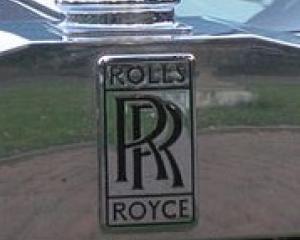Michael Andrew Swann (47) and long-time friend and business associate Kerry Gray Harford (48) both deny misappropriating almost $17 million from the board over a period of six years by fraudulently using 198 invoices from Sonnford Solutions Ltd, a Harford-owned company, to charge for computer-related services never delivered.
The Crown says the two men charged the board a total of $16.9 million, effectively for nothing, but the defence says the charges were for an insurance type of risk mitigation service, and that if a major problem occurred with any of the hospital servers, Sonn-fords would call in the expertise and services needed.
In evidence to Justice Stevens and a jury at the start of the second week of the trial, a board senior business analyst Grant Paris said he analysed historical information after Swann's dismissal to check the IT department's actual costs and spending trends during the years Swann was in charge.
During the years from 1999, the budget for software, hardware maintenance and operating leases increased from $1.4 million to $5 million, the actual expenditure for those items being almost $8 million in 2006.
But Mr Paris told Crown counsel Robin Bates, the charges that came through were actually inflated as although the invoices presented for payment were dated 2006, they were for the 2007 period. And when Swann left the organisation, they had to account for the charges within the 2006 year.
Asked whether he had spoken to Swann about variances in maintenance costs increasing beyond the budget, Mr Paris said he had and Swann had asked him "what to you want me to do - turn the f . . . . . . things off?" (referring to the hospital's three main servers).
He had not discussed the matter with Swann any more after that as he sometimes found conversations with him "intimidating".
The analysis he carried out after Swann's departure was of the Sonnfords contract schedules and the payments made by the ODHB from the invoices. Although it was difficult to tie the invoices to the contracts with 100% accuracy, Mr Paris said he established that between 2000 and 2006, the board paid Sonn-fords $16.9 million.
Earlier yesterday, board CEO Brian Rousseau said contracts signed by Swann with Sonn-ford's were "very irregular", and that Swann's signing authority was limited to invoices totalling not more than $200,000 a year.
Assuming the various Sonn-ford contracts were executed at the times dated, which was about a month after his appointment as CEO in February 2003, Mr Rousseau said they would have fallen outside the board's existing policy of delegated authority.
From his previous experience with IT, and with the Manukau Health Board, he believed the contracts would not have withstood scrutiny had they been checked by a lawyer. And he described as "very strange", exclusions in the contracts suggesting the charges did not cover the actual costs of an engineer or any maintenance work and associated costs.
"I've never seen that before," Mr Rousseau said.
The contracts had various irregularities and contradictions, lacked a "force majeure" clause to cover "acts of God" situations, and referred to other agreements of which the board had no copies.
They also referred to the "umbrella agreement", being templates designed by Chapman Tripp some years earlier.
Swann provided these when asked about the Sonnford contracts because of concerns from the board's chief financial officer, Robert Mackway-Jones.
When copies of the signed contracts were made available, he had inspected them "with some interest, as did Mr Mackway-Jones", Mr Rousseau said.
The original contracts were obtained by the Serious Fraud Office when they went to Swann's office on the night of September 27, 2006, when two letters were also found - one from Swann to Harford talking about decommissioning one of the servers and another giving notice that upgrading to the later versions of an IBM operating system would not be required.
Mr Rousseau said Swann "pleaded ignorance" when he raised with Swann the question of delegated authority in relation to the contracts, although the accused was concerned he might have gone outside his area of authority.
Cross-examined by John Haigh QC (Swann), the witness said he did not become aware of a Swann-controlled company called Computer South Ltd until after Swann's dismissal.
Asked about a January 2005 invoice from plumbing draining and bathroom supplies company Edward Gibbon, Mr Rousseau agreed it referred to items he had bought. He was new to Dunedin at the time, had asked where to buy plumbing supplies and Swann said to go to Edward Gibbon and "tell them Mike Swann sent you".
Mr Rousseau said he did not recall Swann saying to use his account and neither did he remember seeing the name Computer South Ltd on the invoice. He did not know if he even got a copy of the docket but, if he had, he had probably "shoved it in the bag with the goods".
The hearing continues today.



